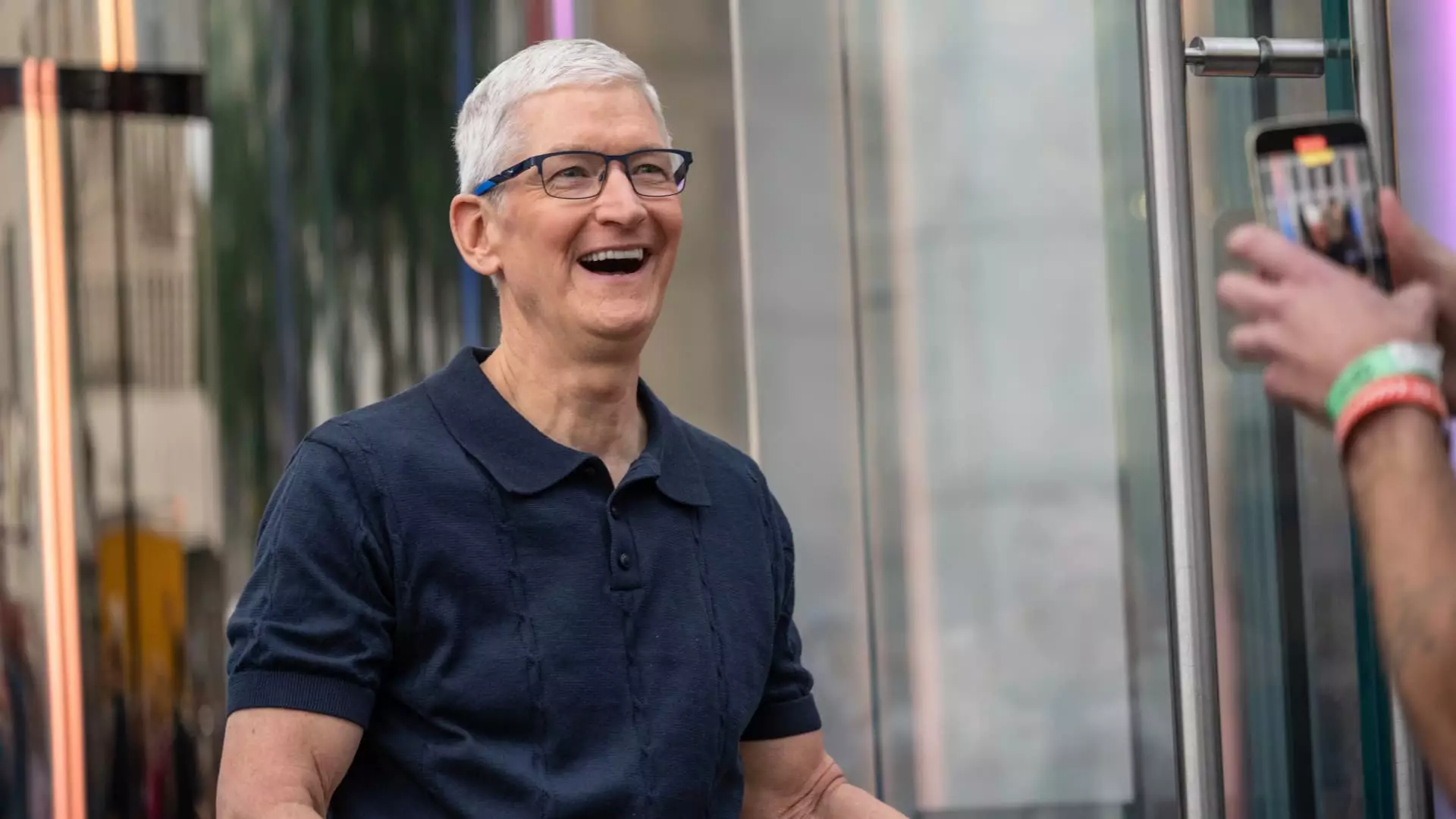In a significant move that underscores its dedication to the U.S. market, Apple announced plans for a groundbreaking $500 billion investment in American innovation. This monumental commitment, made public on Monday, includes the establishment of a new factory dedicated to artificial intelligence servers in Houston, Texas. This strategic expansion not only marks a pivotal shift in Apple’s manufacturing approach but also highlights a response to growing pressure regarding its overseas production networks.
A New Infrastructure for AI Technology
Set to occupy an impressive 250,000 square feet, the new facility will be tasked with producing servers tailored for Apple Intelligence, the company’s AI personal assistant technology integrated into its flagship products, such as iPhones, iPads, and Mac computers. The commencement of operations is anticipated in 2026, aligning with Apple’s broader vision of enhancing its product offerings through advanced AI capabilities. This factory will play a crucial role in the company’s mission to refine and expand its AI services, potentially positioning Apple as a leader in personalized technology.
In conjunction with the new factory, Apple announced plans to introduce approximately 20,000 new positions across the United States over the next several years. A significant number of these roles will be centered on research and development (R&D), software engineering, and advancements in AI and machine learning. This expansion signals a robust commitment to fostering innovation within the tech sector, bringing a wealth of employment opportunities that could invigorate local economies and attract talent to the industry.
Apple’s CEO, Tim Cook, articulated the company’s enthusiasm for innovation in the U.S. during the announcement, stating, “We are bullish on the future of American innovation.” This sentiment appears to reflect Apple’s attempt to position itself as a responsible corporate citizen, pledging to contribute significantly to both job creation and technological advancements in the country.
This announcement comes on the heels of political pressures from the Trump administration regarding Apple’s reliance on manufacturing in China. The introduction of new tariffs on Chinese goods has heightened scrutiny on companies like Apple that maintain substantial overseas production operations. By shifting some focus back to American manufacturing and investment, Apple is attempting to navigate these geopolitical challenges while also appealing to governmental expectations for increased domestic investment.
Furthermore, Apple’s investment plan includes partnerships with suppliers across the U.S. and the creation of media content for its Apple TV+ service in a broad range of states. This multifaceted approach not only broadens the scope of Apple’s influence on the American economy but also illustrates the company’s commitment to diversifying its portfolio in a rapidly changing technological landscape.
Apple’s investment strategy goes beyond mere financial input; it aims to establish a new manufacturing academy in Michigan and double its U.S. Advanced Manufacturing Fund to $10 billion. This initiative is designed to cultivate talent in cutting-edge fields such as silicon engineering, which is crucial for the growing demand for innovative computing solutions. By investing in education and workforce development, Apple not only addresses immediate labor market needs but also prepares for a future characterized by technological advancements.
Apple’s substantial investment in the new factory and associated initiatives signals a transformative period for the technology giant, positioning it at the forefront of AI development and manufacturing. The benefits extend beyond Apple, promising a ripple effect throughout the U.S. economy by creating jobs, enhancing local industries, and fostering an environment ripe for technological innovation. As the company embarks on this ambitious journey, the implications for the tech industry—and for the American workforce—could be profound, potentially redefining the landscape of technology and artificial intelligence in the coming years.

